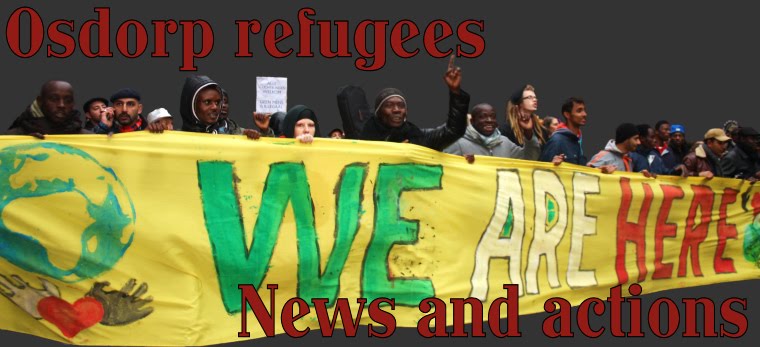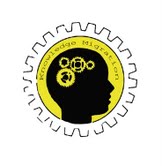Yes we camp

In Amsterdam and The Hague rejected refugees from Africa and the Middle East are enduring the harsh weather in make shift tent camps where they demonstrate against the Dutch way of treating rejected refugees since September 4th (Amsterdam) and 19th (The Hague). Since 2010 asylum seekers who have been rejected are no longer entitled to basic rights such as shelter and food. Even when it is impossible to return to their countries of origin, the Dutch government argues that they can leave voluntarily. Denying them access to reception centers, putting them in prison and forcing them to survive in parks, railway stations and insecure hiding places, that is the way to convince them to leave this country. In the first half of 2012 4.680 asylum seekers have been dumped on the street without any life support, according to the International Network of Local Initiatives with Asylum seekers (INLIA). These self-organized action by the refugees have highlighted a humanitarian problem that has been growing for years and was hidden from the public eye. Now these people have made themselves visible and seek solutions by entering in dialogue with civil society and democratic representatives. To realize their aims they need to be together, safe and visible. Apparently the authorities want to make them disappear again. The only offer is for some of the refugees to go for 30 days in dispersed shelters for homeless people. After that they would again be on their own, insecure and invisible. A growing number of supporters is trying to create sustainable ways to continue this struggle for human rights. One way would be to make a space available as a meeting point for refugees, a House of Hope.
On their blog, the refugees that camp out in Amsterdam declared:
“We are here because our life is in danger. There are many reasons for this. War is the most important one. There are several armed conflicts in Africa that cost many lives, disrupt families and livelihoods. Political violence and oppression, religious division, problems between tribes and clans add to make solutions complicated. Drought, famine and other economic factors also push people to find a better future elsewhere. All these cases are inter-related. We can see this in the extremist movements. They make life impossible for you if you do not conform to strict rules. Having a drink can cost you your life. Being a member of another tribe, or of another religion, can bring you into deep trouble. So we are here because we face persecution and danger in our countries. We need to be in the Netherlands because this country is a free country where our lives are safe and we could build a future. “
We want your help. We want to get out of this situation. We want your help, not just with food and drinks, but with the broader issues. Help us with publicity, be creative: think about how you could help. Whether you’re politically active, or a journalist, everyone can help in their own way. We have 5 representatives you can talk to, to explain our situation.
The name “Refugees-on-the-Street” was coined when they started organizing in the spring of 2011 in Utrecht, with support of the STIL Foundation, a solidarity group for migrants without a residence permit. They are people who fled their home country, asked for asylum but were denied permission. The capstone of the asylum procedure is deportation. Undocumented migrants are systematically held in administrative detention for up to 18 months and this can be repeated endlessly. If they cannot be deported they are put on the street without any title of right, no shelter no care, nothing at all. Most of them go in hiding, including women with children. They depend on charity, on good will (or bad will) of private people. But more and more refuse to hide and they fight for a decent life, for hope.
Since the big tent camp in ter Apel everybody knows they are here. Through their demonstrations and actions, by their presence in the media and in politics they have joined the public debate. In Amsterdam the Camp against the Cold started on the 4th of September where a growing number of refugees find shelter, food, safety and medical care. With their slogan “WE ARE HERE” (WIJ ZIJN HIER) they show that WE are human beings, WE have nowhere to go, WE stay here until we have a solution that respects our human rights. In the camp at Notweg 32 in Amsterdam Osdorp are mainly African men and women (children are not allowed by the Mayor of Amsterdam) from Somalia, Eritrea, Ethiopia, Sudan, Kenia, and francophone people from Congo, Mauretania, Ivory Coast, Sierra Leone, Mali and Guinee. There are individuals from Yemen (2), China and Armenia.
In Den Haag a group of Iraqi (mostly Kurdish) refugees is camping near the central Staion in open tents in worse conditions than in Amsterdam. They carry the name RIGHT TO EXIST.
